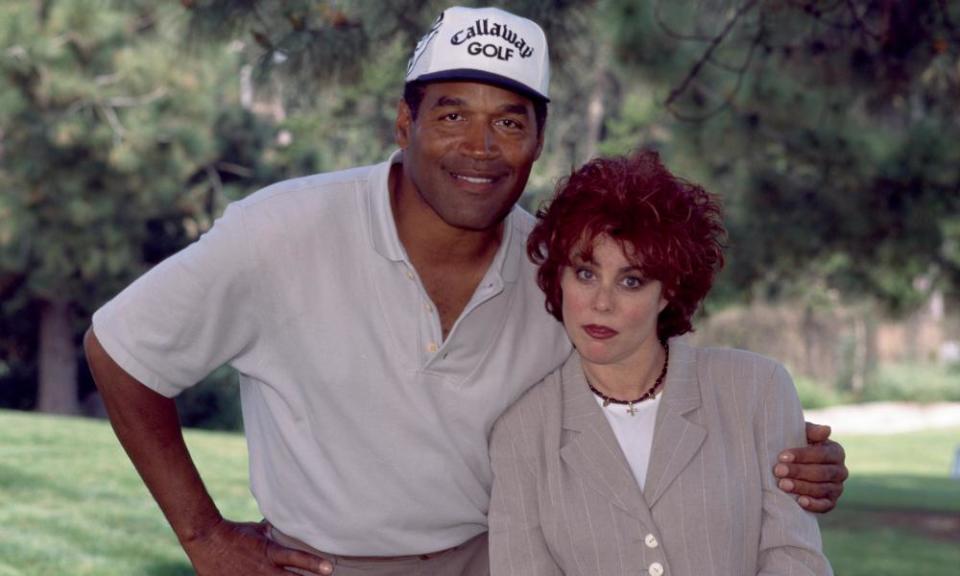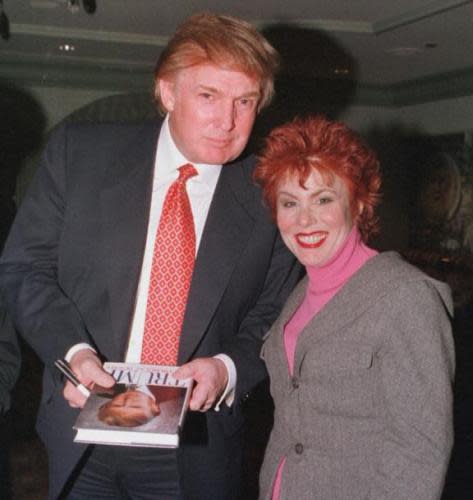When Ruby Wax Met … review – excruciating outpourings from OJ Simpson, Donald Trump and more

When Ruby Wax Met … (BBC Two) gives us a double whammy of Wax, then and now, and proves to be an absorbing analysis of celebrity, fame and the massive cultural shifts that have taken place over the past four decades. In the 90s and early 00s, Wax pioneered documentary-style celebrity interviews, with the camera often rolling before she and her subject had even met. She spent time with A-list stars such as Tom Hanks, Goldie Hawn and OJ Simpson (more on him later) and was granted a level of access that is unheard of in this age of brand management and “controlling the narrative”.
Now a writer, comedian and mental health campaigner, Wax says she has not seen these interviews for 25 years: “It’s another life. It doesn’t even feel like the same skin.”
Over three episodes, she rakes through the archives, revisiting some of her most infamous encounters and reflecting on what has changed since. At the start of the year, she appeared on Louis Theroux’s podcast, Grounded, and talked frankly about how she had resented him for what she saw, for a time, as him stealing her career. Her approach to interviews was big and bold, sometimes brash, often with herself at the centre; Theroux came along and was the quietly observational outsider. Trends come and go – and understated was in.
This could have been a simple retrospective, gathering together Wax’s greatest hits, but it is much more thoughtful and has a lot of depth. She begins by rewatching “the worst interview I ever did”, with Donald Trump, in 2000. She calls it “excruciating” – and it is. Trump repeatedly calls Wax obnoxious. His comments knock her off her game and we see her flounder. He rarely looks at her, addressing his answers to the camera. The thought of an interview turning so sour, so quickly, is a journalist’s worst nightmare. “I’m even cringing now,” says Wax, who explains that she was afraid of him. Often Trump is characterised as a buffoon; Wax captures his menace.

More jaw-dropping still is her encounter with OJ Simpson, which she saves until the end of this first episode. She calls him “the most complicated character on Earth” and it seems as if she is trying to work him out, all these years later. “His presence was very jagged,” she says. “I couldn’t look in.” Wax is blunt with him and Simpson plays up to it, pretending to stab her with a banana. They walk around Venice Beach and people shake his hand and heckle him, sometimes in the same move. It is impossible to imagine an interview like it now.
Equally as fascinating as the horror shows – and much more enjoyable – are her encounters with Carrie Fisher and Goldie Hawn, both of whom warmed to Wax and gave her frank and eloquent interviews, while appearing to fully enjoy the experience.
To see Fisher in her prime is exquisite. She is gorgeous, witty and fun. The interview ends with Fisher deciding that the two of them are going shopping. They became firm friends afterwards and did indeed go shopping, says Wax, for 35 years after. Her time with Goldie Hawn, who answers the door wearing no makeup and does the interview between her bed and a Jacuzzi, is similarly joyful. It is also honest and insightful.
Wax defends the idea that such setups were there for the “wacky” factor as a misconception. Really, they led to far more interesting and revelatory conversations, because they meant celebrities were less guarded than they were in the traditional studio setup that had thrived for so long.
A setup in which Tom Hanks was primed to laugh at all of Wax’s jokes made for a high-concept interview, if one that revealed far less about Hanks than it did about Wax. But given that her best encounters required her subjects to be up for it, it is fitting that – 25 years on – Wax is up for it, too. She is brutally honest about her own psychology and why it made her act the way she did. Trump was her worst nightmare because he reminded her of her disapproving father. She loved Fisher and Hawn because she felt liked by the popular girls who had shunned her at school. She created a persona to be on television; it made for good TV and, inevitably, she started to become her character. “I turned from the ugly duckling into Joan Rivers overnight,” she says. Watching it play out, with the benefit of Wax’s considered analysis, is a treat.

 Yahoo News
Yahoo News 